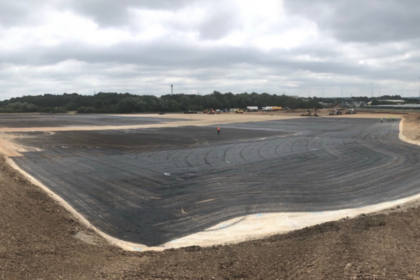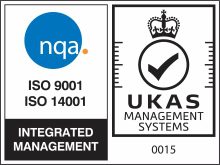
Engineering consultancy Rodgers Leask is working with PowerCem Technologies to improve sustainability on construction sites by converting unsuitable soil into an engineering material called RoadCem, drastically reducing a project’s carbon footprint by 80% to 90%.
Using RoadCem and expert design techniques, Rodgers Leask can support contractors in creating temporary roads, permanent roads, working platforms, piling mats and car parks. Manufactured in Holland, RoadCem is a product designed and sold for building stabilised soil road base, used as a sustainable replacement for unbound stone and binder course.
The innovative soil stabilisation material works well with topsoil, while other ground improvement methods cannot deal with greater than five per cent organic content, and is capable of binding in contaminants so they do not leach out into the environment. Additionally, it can be installed in wet weather while alternative methods only work in dry conditions.
Andy Leask, director at Rodgers Leask, said: “It is crucial that we are thinking of new ways to reduce the environmental impact of construction projects and our collaboration with PowerCem is an innovative example of this. With the introduction of RoadCem into designs, the risks of environmental pollution and use of a finite resource are reduced. And any reduction of concrete, which is responsible for around seven percent of the world’s carbon emissions, is a progressive step towards a net zero future.”
This eco-friendly method has been used in Burton at Claymills sewage works. Rodgers Leask came up with the solution that allowed a piling mat to be constructed in only seven days using the very soft silty soils present on site. Using the soil that already existed on site avoided significant HGV transport taking unsuitable soil to landfill and bringing in freshly quarried stone. The traditional method of constructing a piling mat for a structure of this size would have needed an excess of 2000 truckloads of stone delivered to site.
RoadCem was adopted at Claymills after desktop studies and on-site trials with industry experts confirmed that it would be most suitable method for stabilising the silty organic soils.
For more information on civil, structural, geo-environmental and transport engineering consultancy Rodgers Leask, please visit rodgersleask.com.












You must be logged in to post a comment.